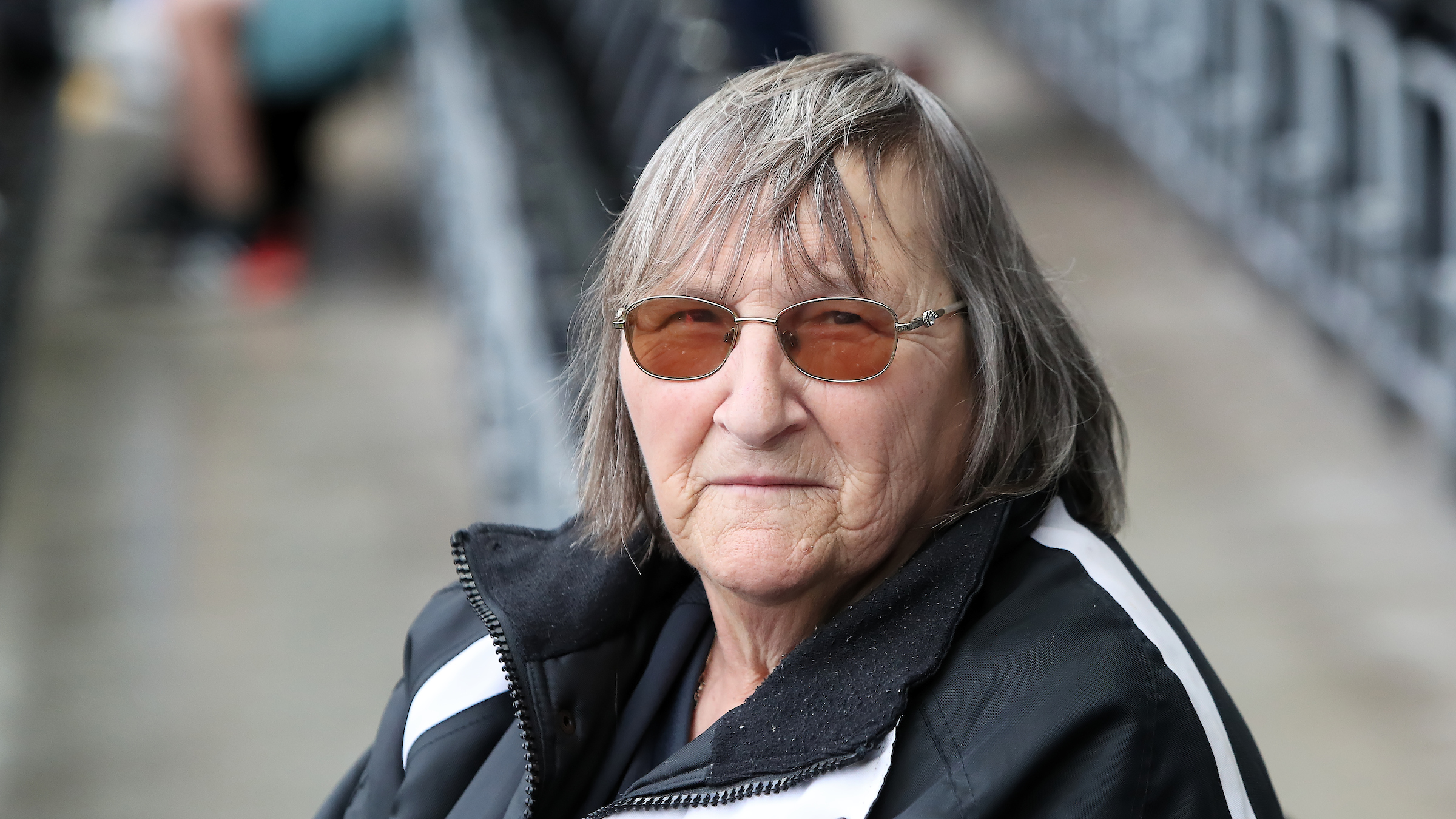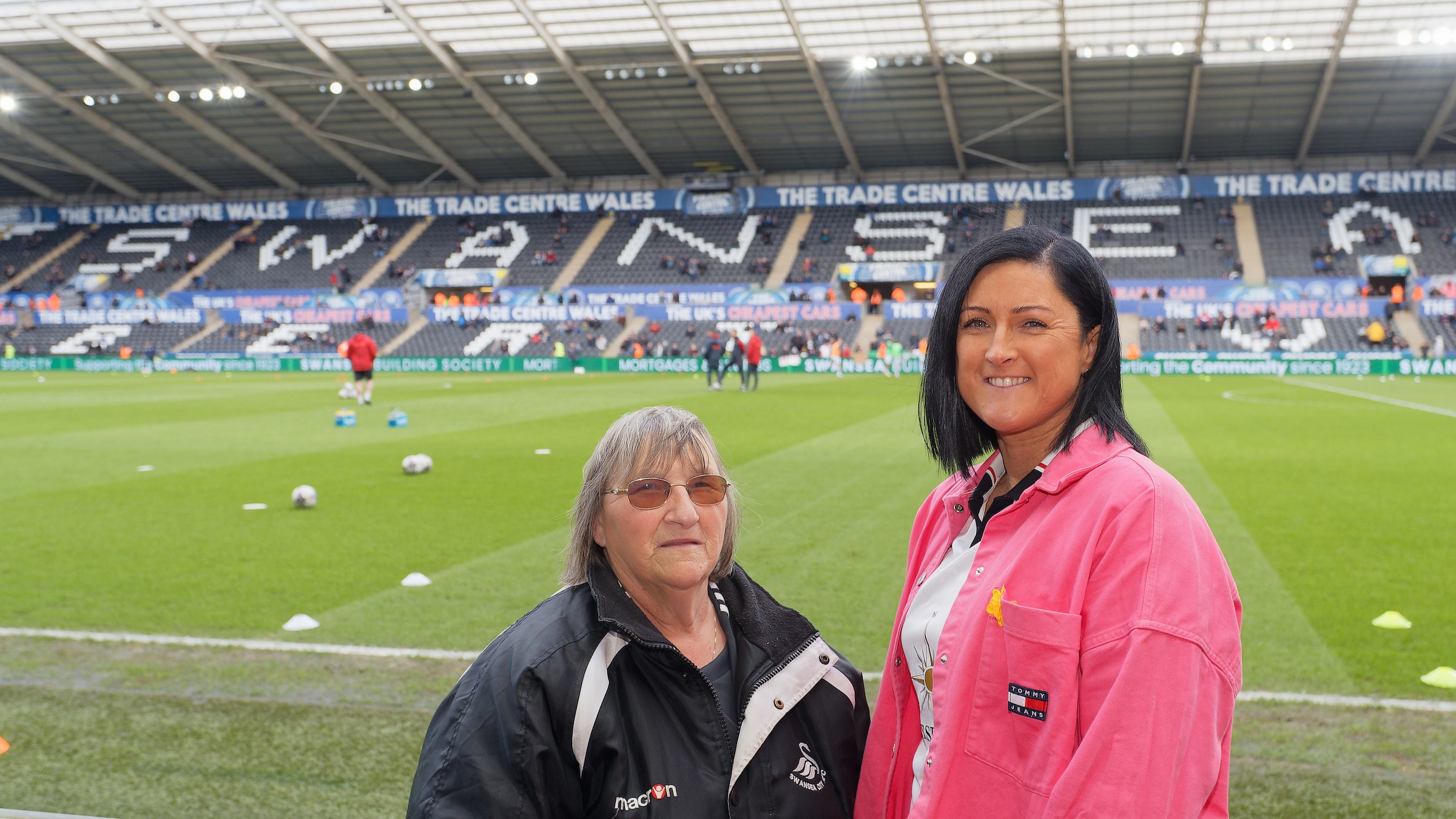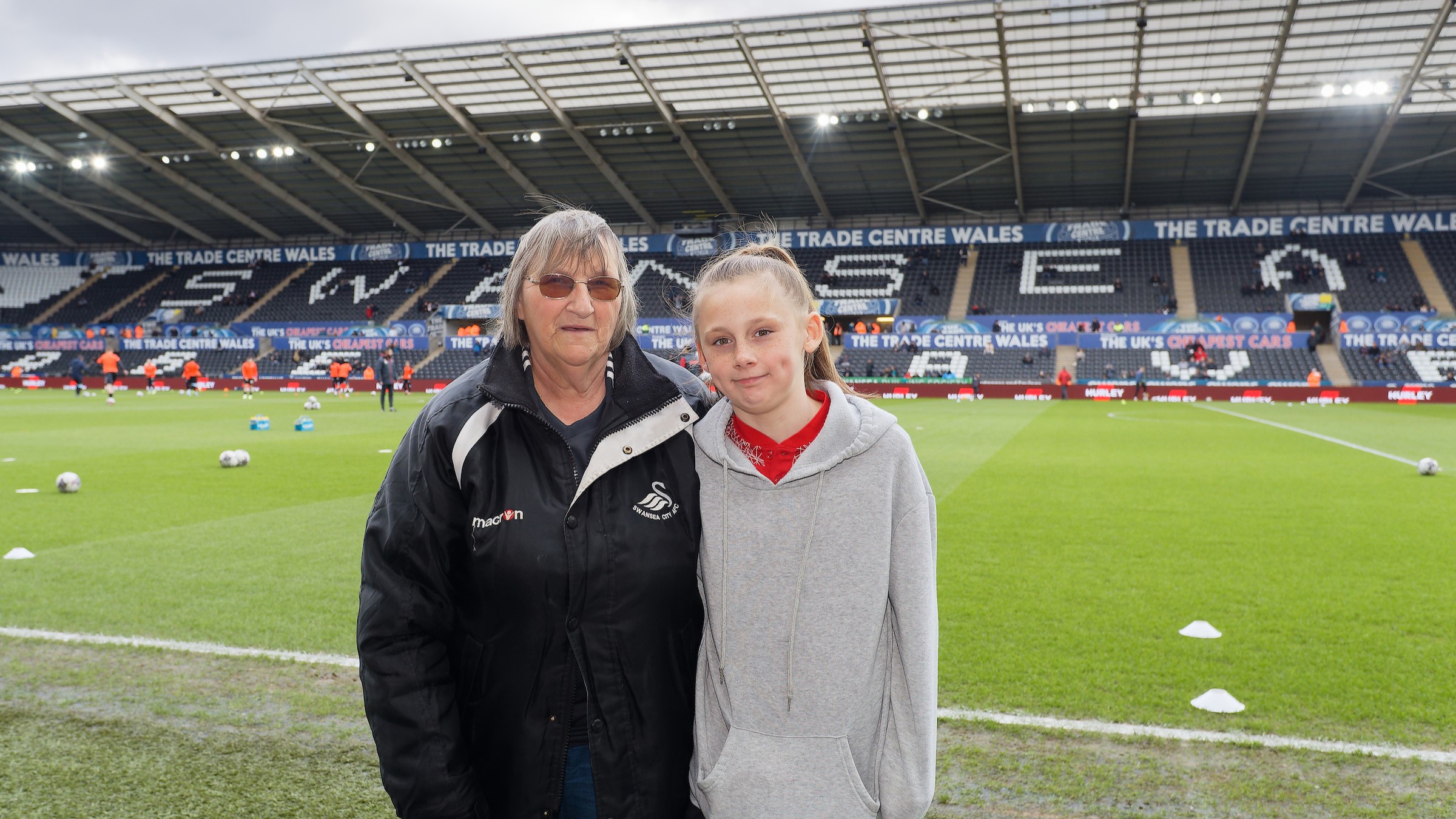International Women's Day | Swansea City Originals | Julie Lowe

There was no shortage of Swansea City success at the 2014 Football Association of Wales awards, but the person from the club who took home arguably the most prestigious prize went firmly under the radar.
Captain Ashley Williams was named club man of the year, academy product Ben Davies was awarded young player of the year, but Julie Lowe barely got a mention when the evening’s events were recapped and reported on.
Julie Lowe was sat on a table near the stage at the St David’s Hotel in Cardiff Bay, with former Wales and Everton captain Kevin Ratcliffe and his wife.
Lowe’s formal title was club secretary of Swansea City Ladies (although that hardly does justice to the range of duties and responsibilities she undertook) and she was oblivious as to why her invitation at the event had her sat on the same table as Ratcliffe.
“I didn’t know anything about it,” she recalls.
“We were sat on the table: myself, Ian [Owen, then-Swansea City Ladies manager], Kevin Ratcliffe and his wife. We were chatting away and I suddenly thought ‘they’re talking about me up there!’”
Lowe had won the women’s long-standing achievement award. Ratcliffe was awarded the men’s version of the same award which explained the seating arrangement.
“It was a great night. It was nice to be recognised for everything I had done,” she smiles.
The award was recognition for more than a decade of hard work and dedication to the women’s game in south Wales.
It was a journey that had started when she attended a meeting at the Guildhall in Swansea organised by David Griffiths, who was football development officer for Swansea and had experience of management in Iceland and the United States.
“I remember going to the meeting in the Brangwyn Hall, that is where we sort of started,” Lowe says, as she explains the initial meeting organised by Griffiths to gauge interest in starting a women’s team.
“We went to a meeting, and we brought it all together so we were playing under the umbrella of Swansea City.
“Then it came that to the point where they had trials for the girls’ centre, which was being run alongside the new women’s team
“David was the main guy then and he had a few people helping him, Gail Brown, Steve Brown and Ian Owen. I joined on to that.”

The meeting took place in 2001, and by November Griffiths had convinced Wales Under-19 international and Barry Town midfielder Natalie Ashford to take a chance on the project.
Her signing was the first for the new club, and encouraged a host of talented footballers to follow in her footsteps.
Just over nine months later, the team were being photographed at their final training session before their season opener. Look back at those images and stood proudly to the left of the team in full tracksuit is Lowe.
“I was just sort of helping, like a mentor, head cook and bottle washer,” is how Lowe describes those early days.
“I had a lot of roles. I was club secretary and treasurer, I ran on the pitch when a player was injured and I washed the kit.
“Kit washing was like my baby. They took the kit off and it would be inside out, so I’d ask them whether it was like that when they were given it! They’d be laughing.
“There were no names on the shirts then, just numbers. That’s different now. Now they have names and kids can recognise them and look out for the names. It’s brilliant, absolutely brilliant that it’s come this far.
“When we started, half the time you wouldn’t have a ref and the pitches weren’t great.
“It’s fantastic to see how far they’ve come. Just before I left the club they were training in Landore. They’ve had one or two games at the stadium, I’ve brought my granddaughter down. To have that experience for those girls now is fantastic.
“We always hoped it would come to this but the way it was, with no funding and nobody thought women or girls should be playing football, it felt a long way off. It’s absolutely brilliant it’s come to this.”

While Lowe rightly takes great pride in the foundations she helped lay in the early years - and has incredible memories of Champions League victories and trophy and league triumphs - those achievements were earned in the shadows and with very little media attention or supporter fanfare.
She is delighted that young female footballers of today – including her nine-year-old granddaughter Amelia – are starting to have the sort of opportunities she always dreamed of; but Lowe pauses to consider a poignant and pertinent question: Why did it take so long for the women’s Swansea City side to be recognised?
“If somebody says anything to me about the team, I always say, we did this and I’m well proud of it,” she smiles.
“To go from basically nothing, or not being recognised, it’s incredible that it’s come to this with semi-professional contracts and games at the Swansea.com Stadium.
“There is some frustration that it wasn’t recognised earlier. You obviously enjoy doing something and you were being successful in a league representing the club and the city, so why wasn’t it recognised?”
Those frustrations are understandable, particularly given the wider context of the women’s game in the city of Swansea and in Wales in general, because that 2002 Swansea side was not even the first iteration of Swansea City Ladies (now Women).
However, prior to the launch of the current women’s domestic league format in 2009, it’s difficult to find out much about that previous team and those that had gone before.
There was a team carrying the Swansea City Ladies name in the 1990s which Lowe played for and – for the most part – formed the basis of the 2002 team with many of the same players.
Lowe joined that team at the age of 28, and if you’re wondering which club she joined the Swans from, the answer is … none.
Opportunities to play football were so limited for Lowe when she was growing up in the 1960s and1970s (a ban on women’s football in Wales was only formally lifted in 1971) that when she joined the Swans in her late 20s, it was her first experience of organised football training.
“There weren’t many opportunities when I was growing up,” she explains.
“I just used to play with the boys on the streets. It wasn’t until I joined Swansea Ladies around the age of 28 that I played in a structured team because there was just nothing around.
“Two players, sisters Tracy and Dawn Knuska, had put an advert out that they were looking for players and they’d just finished one season so I thought I’d give it a go.
“We were training on the beaches when we couldn’t find pitches, and the Swans used to train where the Amazon factory is now by Fabian Way, so we used to sneak in there. It was a case of wherever we could find a patch to train.
“The beach training was good training because you’re running on the sand and it’s hard. We only trained once a week.
“We played games at the old RTB Club in Landore, but no one came to watch. It was just whoever knew you, like family or whatever. It was just a band of hardcore supporters coming to watch.
“We were playing in the English set-up, so we’d play Frome, Bridgwater, Exeter, Weymouth – teams like that.
“It was a lot of travelling and no funding. We used to have to get our own funding, so we’d get funds for a minibus, kit, travel and pitches.
“We enjoyed, it was good socially. They were a good bunch of girls.”

As would become ever-more apparent in her later off-field role with the 2002 Swansea City Ladies side, Lowe was the ultimate team player, and when asked what position she played, she says: “I played in defence usually. I was always a defender, usually in the centre but sometimes on the right. I played in goals once or twice too, when we were short. I did whatever was needed.”
Despite the considerable efforts of Lowe and the Knuska sisters - among others - to keep a Swansea City women’s football team going at a time when it was hard to enlist players, and travel was long and laborious, the 1990s side eventually folded.
“We played in the English leagues, but they stopped that then and we had to play in Wales,” recalls Lowe.
“I ended up playing for Llanelli, and I was there when David Griffiths started talking about the new club. I was coaching development sides as well.
“They decided they needed extra women to help with the running of the club, so I went with them then as a coach. We played a couple of teams in England, as you were allowed to if you had permission off the FAW.
“David wasn’t here that long, it must have only been three or four years. Ian Owen took on the role and he asked me if I’d come on board with him.
“From then it was Ian and I, we had the girls’ centre and he had the women’s team. We had managers managing each age group, but overall it was myself and Ian managing the whole club.
“It was still the same set up when we went into the Champions League for the first time and, I tell you what, the paperwork for that is tremendous.
“It was a fantastic experience for the girls and to reach that level is phenomenal. It was a good set-up. When we were doing teamsheets here we’d write it out and give it to the ref, but there when you were making subs you had in and out cards.
“You had to make sure your head was on right and you were bringing the right one off! Coming from grassroots to going to that level was fantastic.”
The Swans – and women’s football in Swansea – has come such a long way in such a short space of time.
In 1998, Lowe joined a Swansea City Ladies team leading a nomadic existence searching for training pitches and getting by the best they could.
In the ensuing three decades the club folded, a new one was formed, they hosted Liverpool at The Vetch, won the treble, and beat a Georgian team in the Champions League.
And girls’ football has grown exponentially too. Lowe is only in her mid-60s, but she grew up in a world that just didn’t provide opportunities for aspiring female footballers.
Granddaughter Amelia is growing up in a totally different landscape where girls’ teams in the city and wider community are thriving.
“It’s fantastic,” she reflects on the change.
“I couldn’t do it myself but to see it happening for girls now is brilliant. It’s like my granddaughter, to see it happening for her now and what’s out there for her is brilliant.
“It’s incredible to see how far it’s come in a relatively short space of time.”